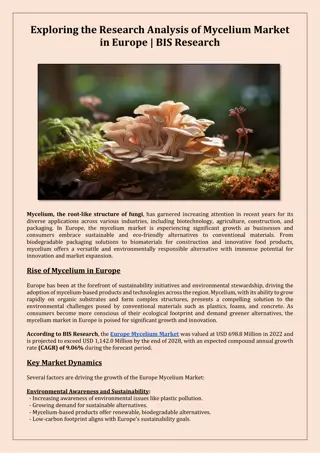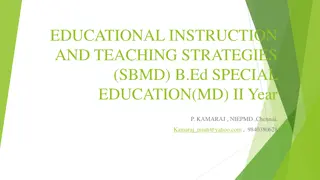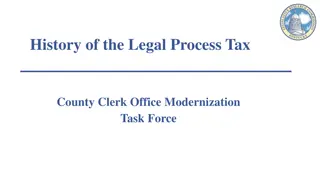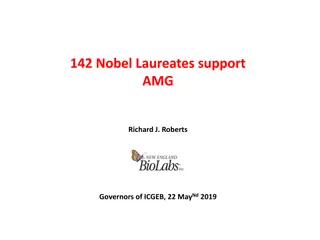
Parts of Speech in Natural Language Processing
Dive into the world of Natural Language Processing (NLP) by exploring parts of speech such as nouns, verbs, adjectives, pronouns, and more. Discover syntactic categories, examples, and even analyze a whimsical text by Lewis Carroll. Uncover the importance of NLP in the context of computer understanding and reasoning.
Download Presentation

Please find below an Image/Link to download the presentation.
The content on the website is provided AS IS for your information and personal use only. It may not be sold, licensed, or shared on other websites without obtaining consent from the author. If you encounter any issues during the download, it is possible that the publisher has removed the file from their server.
You are allowed to download the files provided on this website for personal or commercial use, subject to the condition that they are used lawfully. All files are the property of their respective owners.
The content on the website is provided AS IS for your information and personal use only. It may not be sold, licensed, or shared on other websites without obtaining consent from the author.
E N D
Presentation Transcript
Introduction to NLP Parts of speech
Syntactic categories Substitution test: Nathalie likes { } black Persian tabby small cats. Open (lexical) and closed (functional) categories: No-fly-zone twerk the in
Example The dog chased the yellow bird. Parts of speech eight (or so) general types nouns, verbs, adjectives
Nouns Examples dog, tree, computer, idea Nouns vary in number (singular, plural) gender (masculine, feminine, neuter) case (nominative, genitive, accusative, dative) Case example in Latin Singular: puer (nominative), puerum (accusative), puer (genitive) Plural: puer (nominative), puer s (accusative), puer rum (genitive) Gender example in German M dchen (neuter gender)
Jabberwocky (Lewis Carroll) 'Twas brillig, and the slithytoves Did gyre and gimble in the wabe: All mimsy were the borogoves, And the mome raths outgrabe. What are the parts of speech for the words in bold?
Answers Wabe, borogoves Nouns (after the ) brillig adjective? noun? ( noon ) mimsy adjective slighty toves adjective+noun? noun+verb? ( the bell tolls ) mome raths outgrabe Adjective+noun+verb? Noun+verb+adverb? ( birds fly outside ) 'Twas brillig, and the slithytoves Did gyre and gimble in the wabe: All mimsy were the borogoves, And the mome raths outgrabe.
Why is this an Important Example? Computers see text that they don t really understand. They have to use some prior knowledge. They reason probabilistically. They use context. The can be wrong.
Pronouns Examples she, ourselves, mine Pronouns vary in person gender number case (in English: nominative, accusative, possessive, 2nd possessive) Reflexive and anaphoric forms herself, each other Samantha gave her a haircut. Samantha gave herself a haircut.
Determiners and Adjectives Determiners Articles the, a Demonstratives this, that Adjectives describe properties attributive and predicative adjectives agreement in gender, number comparative and superlative forms derivative and periphrastic positive form
Verbs Describe actions, activities, and states (throw, walk, have) English four verb forms Tense present, past, future Other inflection number (including Dual in Slovenian, Arabic), person Forms gerunds and infinitive Aspect progressive, perfective Voice active, passive
Verbs Participles, auxiliaries Arguments: The dog sleeps (intransitive) The dog chased the cat (transitive) Mary gave the dog a bone (ditransitive) Irregular verbs sleep, slept Richer inflections e.g., French, Finnish cases in Russian, Greek, Tamil, Latin
Other Parts of Speech Adverbs happily, here, never Prepositions of, through, in Particles Phrasal verbs the plane took off, take it off Particles vs. prepositions She ran up a bill/hill
Other Parts of Speech Coordinating conjunctions and, or, but Subordinating conjunctions if, because, that, although Interjections Ouch!













